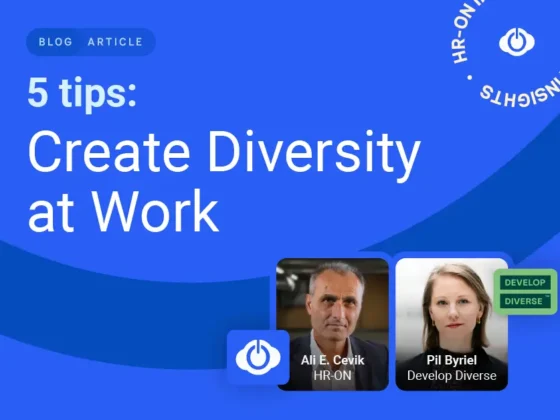Morten from Odense, is 27 years old and educated in Communication. In his spare time, he enjoys playing squash, being a barista, creating crooked DIYs and travelling abroad with his girlfriend. His life is pretty good – The only things missing is that he doesn’t yet have a permanent job.
Morton has done a number of temp and contract jobs, however, he is still actively seeking a permanent position, so that he can get out of the unemployment benefit system completely. Since Morten graduated in 2014, he has been busy applying:
“I have applied for about 200 jobs, so I have gradually formed an opinion on what a good recruitment process is,” he says.
Along with the job search, Morten has been in various internships and salary subsidy positions. He has also worked on improving his professional profile through courses:
“I really want to work with digital communications and have therefore taken courses in Google Analytics and Adwords.”
Vague and unrealistic job descriptions
“One thing I’ve come to realize during my job search is that companies often use clichés, or just list a lot of things they want you to be able to do. It’s rare that I come across a job description that is really targeted and specific,” he says, exemplifying:
“If I read a job description posted by a small library in the outskirts of Denmark and they write: ‘you are a world champion in social media’, then I can’t help but think ‘if I were a world champion in social media then I probably wouldn’t apply for a job here!’. If instead they had been more realistic and honest, and maybe even had a little self-irony, then I would be more interested in the position.”
Morten is not the only one who experiences that companies often resort to clichés in their job descriptions. A large study from Jobfisk.dk shows exactly this point. Similarly, according to the 311 job seekers who answered the survey, they judge companies by their ability to write clear and comprehensive job descriptions, and on average they rate them as mediocre.
Design is important
Morten’s usual procedure when applying for a job is to first check out the company’s website, Facebook and LinkedIn page:
“I do this to get an impression of the company so that I can decide if I want to apply and how to best target my application.”
In this initial process, the visual elements of the companies are of great importance:
“If a website or job description looks nice, it just adds a little extra to my motivation to apply for the job. If, on the other hand, it is poorly made, I might be slightly hesitant and wonder ‘how professional are they?’ It’s important to me that I get a feel for the company in their job description – both in terms of text and design.”
Read more about why it pays off to think about the visual when recruiting: Value-based Recruitment Makes Sense – and Profit.
Transparency in the process, please!
When looking for a job, Morten more often that not receives confirmation that the application has been received. However, it sometimes lacks when it comes to the written rejections:
“Sometimes I end up wondering what happened to a given position I applied for. Then I might get a rejection three months later. Or sometimes not at all.”
Although it can be demotivating to read rejections, Morten still appreciates knowing where he stands and how far along the process the employer is:
“It is a pity to get a refusal, but then at least you can move on and focus on something new. It is also very nice when they write on the job description, or in the email following the application, when they are planning to hold the interviews. When that day comes, and you are still not called to an interview, you know that you probably won’t get that job.”
In addition to ongoing and relevant information, Morten appreciates when the recruitment processes are efficient:
“I appreciate it when the process doesn’t drag out and when I know what to expect.”





